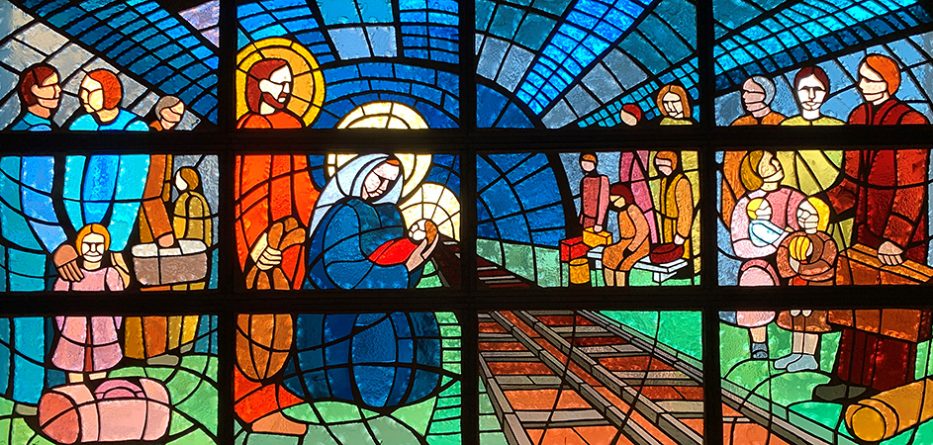18 December is the United Nations’ International Migrants Day
20 December is the United Nations’ International Day of Human Solidarity
It Is a happy coincidence that International Migrants Day and the International Day of Human Solidarity are so closely linked to Christmas. Sponsors of the days might disagree, of course – Christmas can suck up all our energy and attention as it comes close. The Christmas stories, however, embody the attitudes that lie at the heart of these days.
The stories of Jesus’ birth certainly invite us to empathise with migrants in their lives. In Luke’s Gospel, Jesus and the heavily pregnant Mary must leave home in Nazareth and travel into the hill country at Bethlehem. They can find no place to stay there, and Mary is forced to give birth to Jesus in a field. These are the kinds of dislocation and constant pressure to make do that migrants face.
In Matthew’s Gospel, Joseph, Mary and Jesus are forced to leave home abruptly because Herod has put out a contract on Jesus and other children of his age. He sees him as a threat to his kingship. They must live as refugees in Egypt awaiting a time when they can return home safely. Their story will be all too familiar to millions of refugees. In both stories, Jesus and his parents are identified with the little people who are forced to do it hard in the world.
The larger story behind Jesus’ birth models the solidarity that is the proper response to migrants and other people who find themselves in need. It speaks of a God who loves the world and each person in it deeply enough to want to join it and to share all the beauty and joy of human life, but also all the griefs and weaknesses. In Jesus, God ultimately shares the savagery and exclusion that so many human beings experience. Through sharing our death, he brings life and hope to his fellow human beings. We can say that God sees a need, reaches out in compassion to those who suffer, and acts to change their situation.
When Pope Francis speaks of solidarity, that large story is always in his mind. Underlying it is the conviction that all human beings are precious and that we are more than individuals who compete with one another. We are shaped by our relationships. Our wellbeing and happiness depend on our cooperation with one another. The health of our society depends on our care for one another and particularly for people who are most vulnerable. In simple words, we are brothers and sisters in one family, needing us to be responsible to one another if we are to survive. This is the meaning of solidarity; its cement is love.
In practice, of course, many people understand society to be competitive, with winners taking all. They resent paying the taxes which are one expression of solidarity – they allow the wealthy to contribute to the good of society. They also resist any suggestions of a social contract within economic policies. Restrictions on profit-making by the work of trade unions and other measures that will curb gross inequality are also strongly opposed.
Understandably, too, people who are excluded from sharing fairly the benefits of society will also see society as competitive and will look for power to change laws and practices that disadvantage them. Neither group then sees solidarity as the relationships between members of a family who always look out for one another. Both see it rather as a conflictual relationship in which the members of one’s class must stand together in order to win the struggle with their enemies.
Solidarity visualises all people as brothers and sisters and encourages them to look out for one another and particularly for the most disadvantaged members of society. That vision leads us as persons to attend to the needs of people around us and to our environment, care for them, and join together to make a more just and harmonious society. At Jesuit Social Services, that takes the form of personal accompaniment of young people who suffer from disadvantage, admiring their resilience, and helping them find ways to connect to society. To do that we need to help them find a voice and to press for policies that encourage their growth.
Fr Andrew Hamilton SJ writes for Jesuit Communications and Jesuit Social Services.








